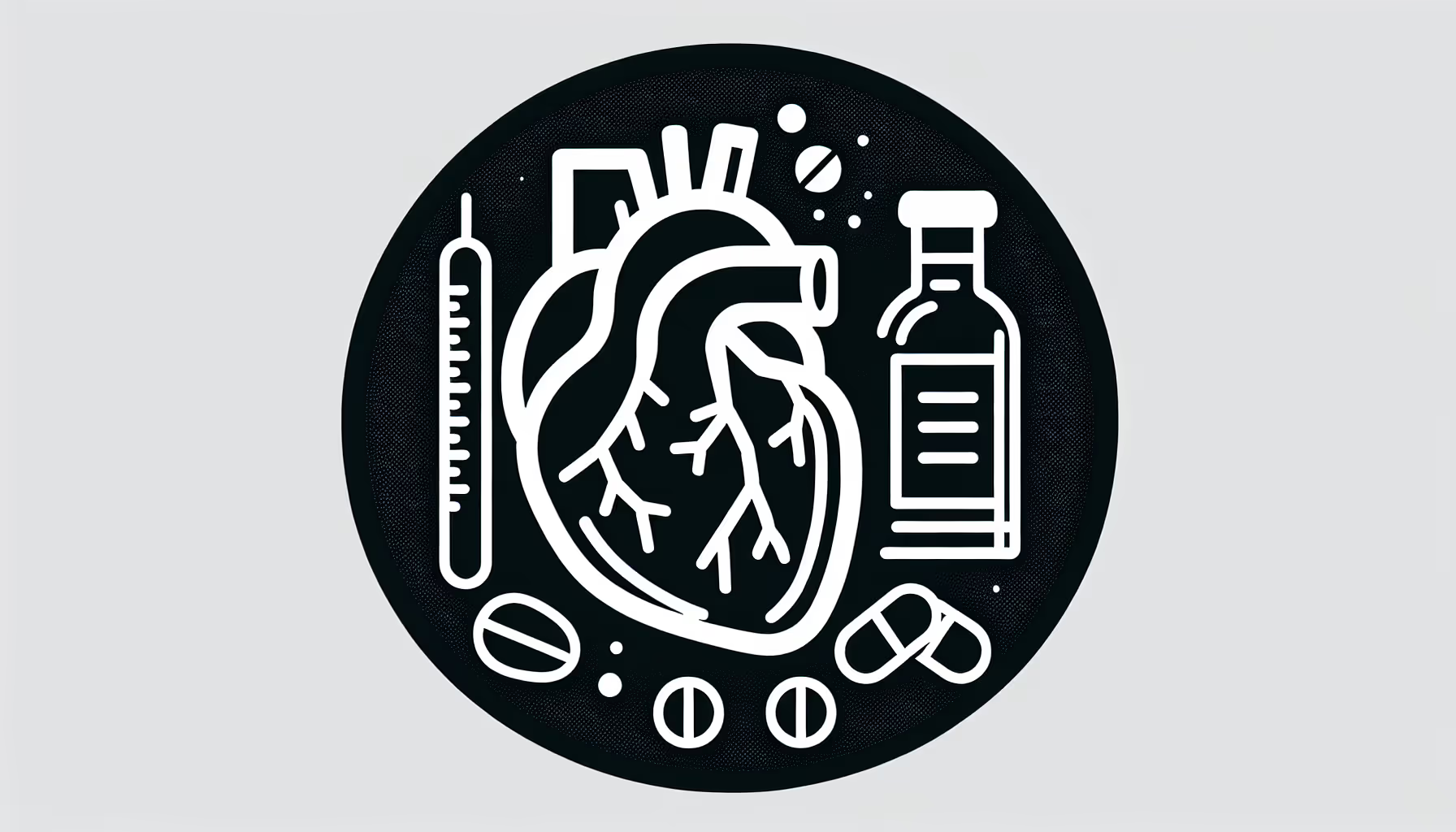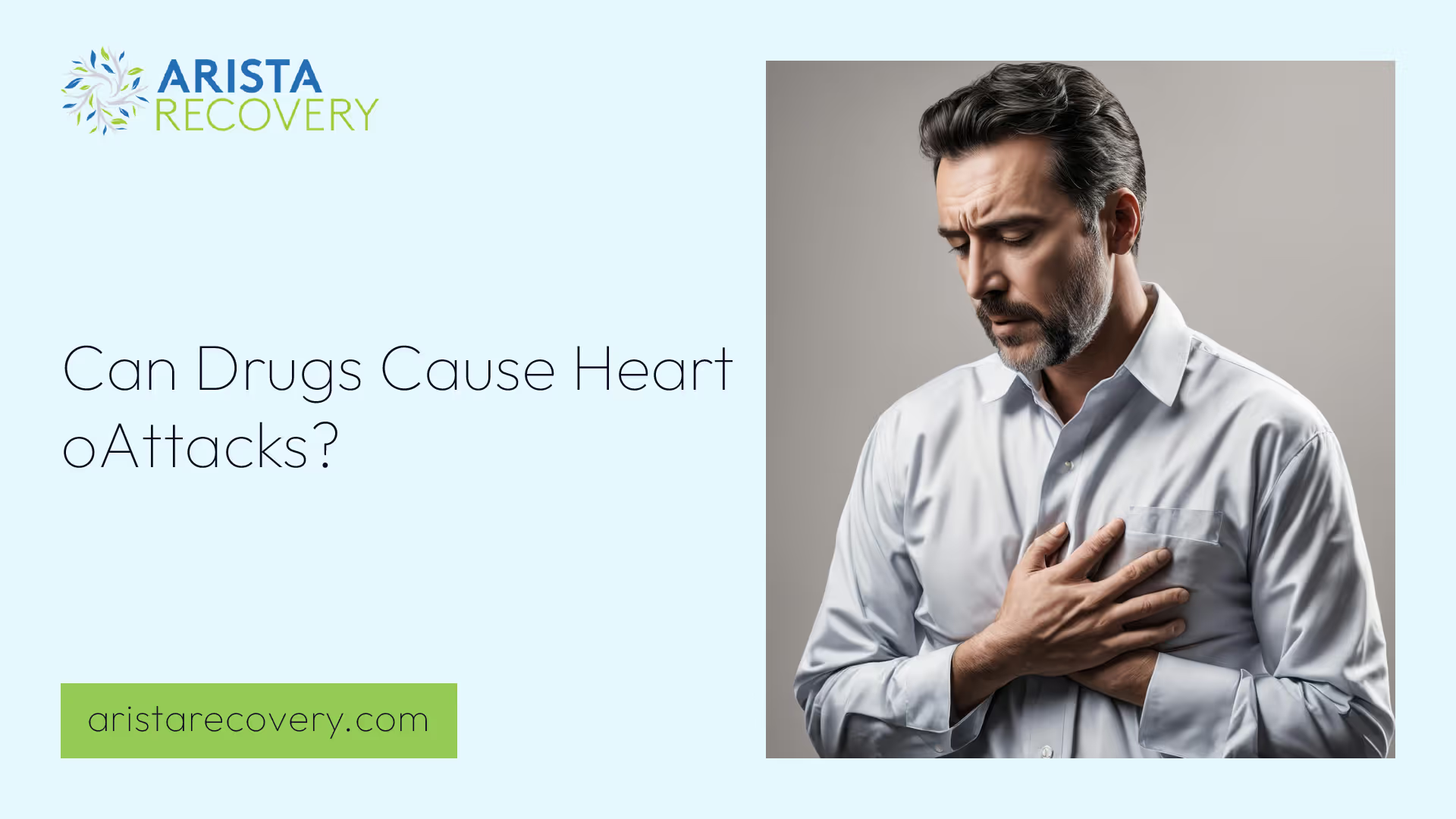Can Drugs Cause Heart Attacks?

Understanding Drug-Induced Heart Attacks
When it comes to heart health, one's lifestyle, diet, physical activity, and genetics play significant roles. However, another critical factor that often goes unnoticed is the impact of certain medications on the heart. Both prescription and illicit drugs can potentially lead to heart attacks, making it crucial to understand the connection between these substances and heart health.

The Connection Between Drugs and Heart Attacks
A variety of medications can contribute to the development of heart failure or even cause a heart attack, according to WebMD. This includes nonsteroidal anti-inflammatory drugs (NSAIDs), antipsychotic drugs, certain anticancer drugs, and some antibiotics.
It's also noteworthy to mention that substance abuse, including the use of drugs such as cocaine and methamphetamine, can trigger heart attacks by damaging the heart muscle and constricting blood vessels. These drugs can also cause blood clots, irregular heart rhythms, and high blood pressure, contributing to an increased risk of cardiac events among users [1].
Recognizing the Risk Factors
Understanding the risks associated with these substances is crucial for mitigating potential damage. For instance, NSAIDs, commonly used for pain relief, have been associated with an increased risk of heart attack and heart failure. It's important to use NSAIDs cautiously and only under the guidance of a healthcare professional.
Certain antipsychotic drugs can negatively affect heart health, leading to heart failure or heart attacks. Patients taking these medications should be closely monitored by their healthcare providers to mitigate risks and address any concerns promptly [2].
Illicit drugs pose a significant risk as well. The risk of heart attack is significantly heightened in the first hour after cocaine use, with the likelihood decreasing after the first 24 hours but still remaining high for several days, creating a prolonged period of risk for users.
Furthermore, methamphetamine use can lead to a sudden heart attack or delayed cardiomyopathy, a condition in which the heart muscle becomes enlarged, thick, or rigid, reducing its ability to pump blood efficiently. This increases the risk of heart failure and other cardiovascular complications among methamphetamine users.
Recognizing these risks and seeking prompt medical intervention is critical in preventing drug-induced heart attacks. It is crucial for people who use illegal drugs or take certain medications to be aware of the heart attack risks associated with these substances and to seek medical advice if they have concerns about their heart health.
Common Drugs and Their Effects on the Heart
When discussing the link between drugs and heart attacks, it's crucial to consider not only illicit substances but also common medications. Many medications, including nonsteroidal anti-inflammatory drugs (NSAIDs), antipsychotic drugs, and some antibiotics, could contribute to the development of heart failure or cause a heart attack.
Non-Steroidal Anti-Inflammatory Drugs (NSAIDs)
NSAIDs are commonly used for pain relief, but they've been associated with an increased risk of heart attack and heart failure. These medications can lead to fluid retention and increased blood pressure, both of which can stress the heart. Additionally, they can affect kidney function, which indirectly influences heart health. It's important to use NSAIDs cautiously and only under the guidance of a healthcare professional [2].
Antipsychotic Medications
Certain antipsychotic drugs can negatively affect heart health, leading to heart failure or heart attacks. These medications can cause metabolic changes that increase the risk of high blood pressure, high cholesterol, and diabetes — all risk factors for heart disease. Patients taking these medications should be closely monitored by their healthcare providers to mitigate risks and address any concerns promptly [2].
Antibiotics and Heart Health
While antibiotics are crucial in fighting bacterial infections, some of them, such as fluoroquinolones, have been linked to an increased risk of heart problems, including heart attacks. These antibiotics can lead to an abnormal heartbeat or arrhythmia, which can increase the risk of a heart attack. Patients should be aware of these potential side effects and discuss them with their healthcare provider before starting antibiotic treatment.
Understanding the potential cardiovascular risks associated with these common medications can help individuals make more informed decisions about their health and discuss any concerns with their healthcare providers. It's important to remember that while these medications can pose risks, their benefits often outweigh the potential dangers, especially when they're used appropriately under the supervision of a healthcare professional.
The Impact of Illicit Drugs on Heart Health
The use of illicit drugs can significantly impact heart health, leading to heart attacks and other cardiovascular complications. Two common drugs associated with heart-related issues are cocaine and methamphetamines.
Cocaine and Heart Attacks
Cocaine use can lead to constriction of the coronary arteries, which in turn can lead to heart attacks. Furthermore, cocaine use can cause spasms that can escalate to a serious heart attack. The American Heart Association points out that cocaine, particularly crack cocaine, is associated with a higher risk of heart attacks and can lead to sudden cardiac death in young, otherwise healthy individuals. Moreover, American Addiction Centers notes that the risk of heart attack is significantly heightened in the first hour after cocaine use, with the likelihood decreasing after the first 24 hours but still remaining high for several days, creating a prolonged period of risk for users.
Methamphetamines and Heart Risks
Similar to cocaine, the use of methamphetamines can lead to serious heart issues. Methamphetamine use can cause artery spasm, arrhythmias, and infarction, leading to heart attacks. American Addiction Centers further explains that methamphetamine use can lead to a sudden heart attack or delayed cardiomyopathy, a condition in which the heart muscle becomes enlarged, thick, or rigid, reducing its ability to pump blood efficiently. This increases the risk of heart failure and other cardiovascular complications among methamphetamine users. According to the American Heart Association, methamphetamines can lead to increased heart rate, chest pain, and even cause heart attacks due to its effects on the heart and blood vessels.
In sum, the connection between drugs and heart attacks is well-established, particularly for illicit drugs such as cocaine and methamphetamines. It is crucial for users and medical professionals alike to be aware of these risks and work towards mitigating them.
Cannabis and Cardiovascular Risks
In this section, let's delve into the link between cannabis use and cardiovascular risks. Cannabis, like many drugs, can have a significant impact on heart health, as studies have shown.
The Relation Between Cannabis Use and Heart Attacks
An observational study involving nearly 435,000 American adults found that frequent cannabis smoking increased the likelihood of heart attack by 25% and stroke by 42% compared to non-use of the drug. Even less frequent use was associated with increased risk of cardiovascular events, with weekly users demonstrating a 3% increased likelihood of heart attack and a 5% increased likelihood of stroke.
Approximately 75% of the study respondents predominantly used cannabis by smoking the drug, while the remaining 25% reported using cannabis by methods other than smoking, such as vaping, drinking, or eating the drug.
The Long-Term Effects of Cannabis on Heart Health
While the exact mechanisms linking cannabis to heart disease remain unclear, factors such as toxins, endocannabinoid receptors, and the release of similar substances to those found in tobacco smoke when cannabis is burned could play a role in the increased risk of cardiovascular events associated with cannabis use.
Cannabis consumption has shown a significant increase nationwide over the past 20 years, with cannabis now legalized in 38 states for medicinal use and 24 states for recreational use. Studies have linked regular cannabis use to impaired brain development, lung damage, and certain cardiovascular diseases, although knowledge gaps still exist regarding the adverse effects of cannabis on the heart.
Researchers recommend asking patients about their cannabis use during routine medical exams to better understand the long-term effects of marijuana on the body, similar to how they might inquire about tobacco use. This highlights the importance of public health efforts to reduce the burden of heart disease associated with drug use, including cannabis.
Mitigating the Risks
While the relationship between drugs and heart attacks is now well-established, it's essential to consider strategies to mitigate these risks. These include regular health checks and monitoring, as well as seeking medical advice for drug users.
Regular Health Checks and Monitoring
Regular health checks are pivotal in detecting any early signs of heart disease. This is especially crucial for individuals who use drugs, either recreationally or therapeutically, as they are at an elevated risk of heart-related issues. Regular monitoring of vital signs, such as blood pressure and heart rate, can help in the early identification of potential problems.
For people with preexisting cardiovascular conditions, the risk of heart attacks when using illegal drugs is even higher. The strain these substances can put on the heart can lead to dangerous outcomes. Therefore, those with known heart issues should be particularly vigilant in managing their health, and regular checks are crucial.
Seeking Medical Advice for Drug Users
Medical advice is invaluable for those using any form of drugs. Healthcare professionals can provide guidance on the safest practices, help manage preexisting conditions, and offer support for those looking to reduce or quit their drug use.
Specific drugs like cocaine, amphetamines, and methamphetamines have been found to elevate blood pressure, constrict arteries, or cause the heart to beat abnormally. These effects can lead to heart attacks, abnormal heart rhythms, and other heart-related issues [5]. Regular consultations with healthcare professionals can help manage these risks.
Moreover, mixing certain drugs with alcohol can be even more dangerous for the heart. For instance, combining cocaine with alcohol forms a substance called cocaethylene, which may increase the risk of immediate death from a heart attack [5]. Seeking medical advice can ensure individuals are aware of such risks, helping them make informed decisions about their health.
In conclusion, the connection between drugs and heart attacks is undeniable. However, through regular health checks, monitoring, and seeking medical advice, these risks can be managed effectively. It's crucial for individuals using drugs to be informed about these risks and take appropriate steps to protect their heart health.
References
[1]: https://americanaddictioncenters.org/health-complications-addiction/substance-abuse-heart-disease
[2]: https://www.webmd.com/heart-disease/heart-failure/meds-cause-heart-failure
[3]: https://www.mayoclinic.org/diseases-conditions/heart-attack/symptoms-causes/syc-20373106
[4]: https://www.nih.gov/news-events/news-releases/smoking-cannabis-associated-increased-risk-heart-attack-stroke
[5]: https://www.heart.org/en/health-topics/consumer-healthcare/what-is-cardiovascular-disease/illegal-drugs-and-heart-disease
You’re not alone in this.
When mental health challenges and addiction intersect, it can feel isolating. At Arista, we offer compassionate, evidence-based, and trauma-informed care to help you heal, grow, and move forward.
You’re not alone in this.
When mental health challenges and addiction intersect, it can feel isolating. At Arista, we offer compassionate, evidence-based, and trauma-informed care to help you heal, grow, and move forward.
Support that moves with you.
You’ve taken a brave first step. At Arista Recovery, we’re here to help you continue with best-in-class care designed for long-term healing and support.
.webp)






